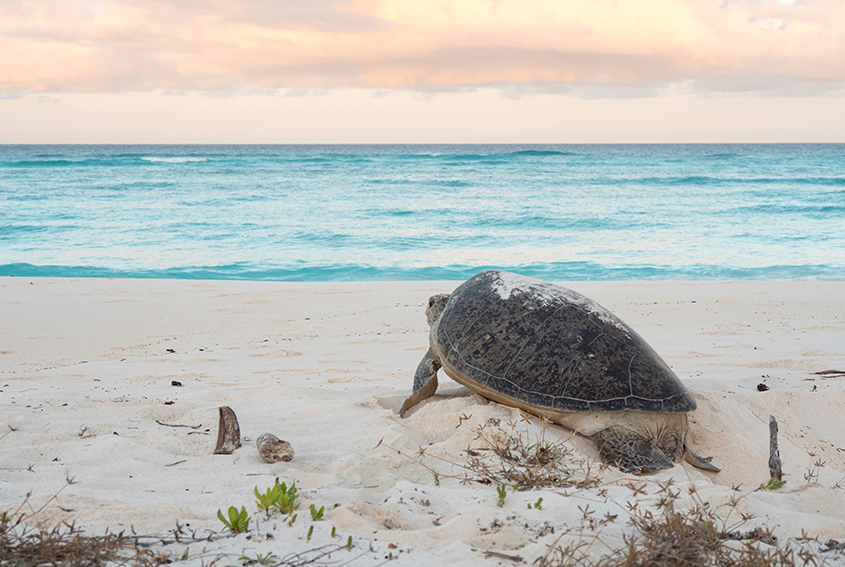Royal Turtle News
Our oceangoing summer visitors are here! The female sea turtles that come ashore on the beaches of the Mexican Caribbean at night to lay their eggs are emerging from the waves in front of The Royal Sands, The Royal Islander and Royal Uno to dig nests in the sand. The latest report from the security teams that are our Royal Resorts turtle guardians is that there are already 173 nests in the corrals at the three resorts and 20,420 precious eggs. We hope that there will be many more over the weeks and months to come.
Most of the nests are green turtles, tortuga blanca in Spanish, (Chelonia mydas), but there are three loggerhead turtle nests at The Royal Sands, caguama in Spanish (Caretta caretta), a positive sign as loggerheads tend to nest further south in the Riviera Maya.
Our security teams will watch over the nests during the summer until the eggs begin to hatch 45 to 60 days later. As the baby turtles struggle free of the eggshell, instinct takes over and the tremendous drive of such tiny creatures to race towards the sea. They remain under protection for a few hours to regain their strength and are released after dark when predatory seagulls and frigate birds have gone to roost.

Remember the turtle season rules
Are you staying at Royal Resorts, Royal Uno or Grand Residences this summer? You can help us protect these special seafaring visitors by following the turtle season rules:
- Alert the security staff when you see a turtle on the beach at night
- Be very quiet and keep still, noise, lights and the movement of people disturb nesting sea turtles and cause them to leave the beach without laying eggs
- Watch from a distance of 10 meters (33 feet)
- Do not attempt to touch the turtle or crowd her
- Do not shine a torch or use the light on your mobile phone
- No flash photography
- No smoking
- Obey security staff when they give instructions
- If you are staying in a beachfront suite turn the terrace lights off when going to bed and close the curtains. Bright lights disorientate turtles and may cause them to move inland instead of towards the sea.
- Help keep the beaches and our oceans clean. Plastic waste such as bags, straws, discarded packaging, fishing lines and nets among others are lethal to turtles and other marine species. Turtles mistake bags floating in the water for jellyfish, a favorite food, and ingest them with fatal consequences and often drown after becoming entangled in fishing nets.
- Wear a t-shirt as protection from the sun if you are going snorkeling or diving instead of applying sun block. Sun products contain oils and chemicals that pollute the water and are harmful to marine life.
- Turtles are protected by Mexican law, and it is illegal to disturb them, persecute or hunt them and consume their meat or eggs.
